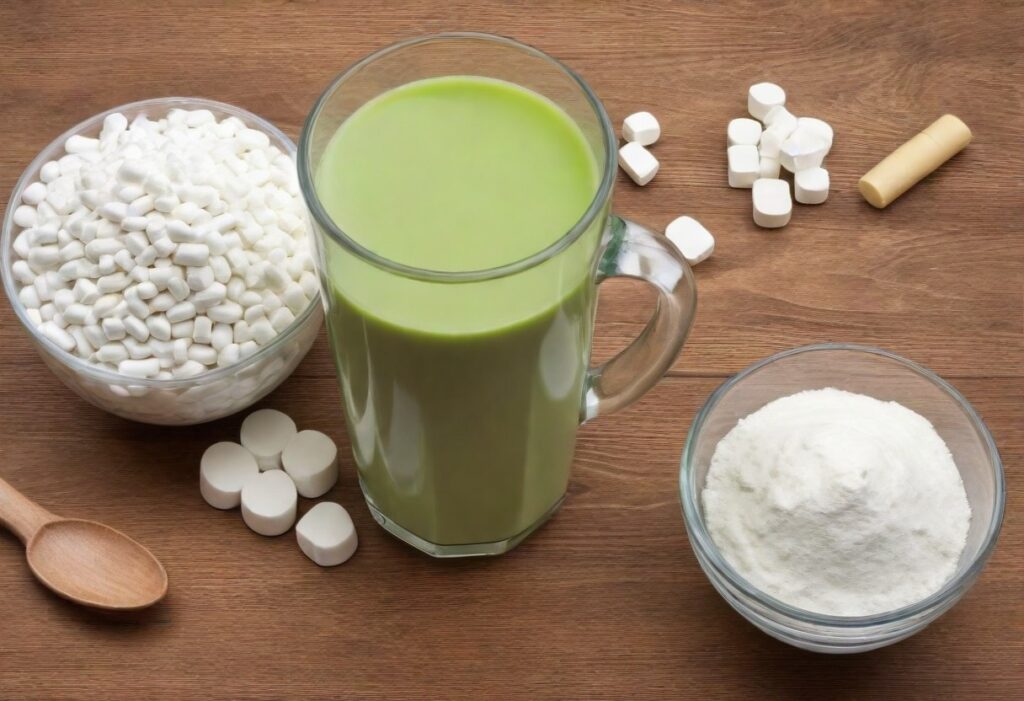Calcium is a important nutrient needed by all living organisms, including humans. It is the most abundant mineral in the body, essential for building and maintaining strong bones and teeth. About 99% of the body’s calcium is stored in these structures, providing strength and stability.
Calcium is also necessary for healthy communication between the brain and other parts of the body, playing a significant role in muscle movement and cardiovascular function.
Dietary sources of calcium include dairy products, green leafy vegetables, nuts, seeds, and fortified products. If you can’t consume enough calcium with just food, supplements are also available to help meet daily requirements.
This article explores why our body needs calcium, the effects of calcium deficiency, which foods are rich in calcium, and the amount you should consume daily for best results.
Why is calcium important?

Strong bones and teeth
Calcium is a major component of bones and teeth, providing structural support and strength.
Adequate calcium intake during childhood and adolescence is crucial for optimal bone development and density, while maintaining sufficient calcium intake in adulthood helps prevent bone loss and reduce the risk of osteoporosis later in life.
Muscle function
Calcium is necessary for muscle contraction and relaxation.
It helps regulate muscle tone and plays a role in the transmission of nerve signals that control muscle movement.
Maintaining adequate levels is essential for proper muscle function and preventing muscle cramps and spasms.
Nerve transmission
Calcium ions are involved in transmitting nerve impulses throughout the body.
They help facilitate communication between nerve cells and regulate various physiological processes, including heartbeat, breathing, and reflexes.
Contributes to blood clotting
Calcium plays a vital role in the blood clotting process, also known as coagulation.
When you experience a cut or injury, your body needs to stop the bleeding to prevent excessive blood loss.
It is one of the key components in a complex series of events that lead to the formation of a blood clot.
Supports hormonal secretion
Calcium acts as a signal for the release of hormones and enzymes.
It helps cells respond to signals that trigger hormone release, such as insulin, and supports metabolic processes, ensuring proper hormonal function and overall health.
Calcium deficiency signs
A deficiency in calcium can lead to several health issues, some of which can be severe.
Understanding the signs and risks associated with calcium deficiency can help you take necessary precautions:
- weak bones
- dental problems
- muscle cramps
- numbness and tingling
- fatigue
- dry skin
- slow hair growth
- memory loss
- difficulty swallowing
- depression or mood swings
- joint pain
- poor appetite
Foods that are rich with calcium
- Dairy products: Milk, cheese, yogurt
- Leafy greens: Kale, collard greens, spinach
- Fish: Sardines, salmon with bones
- Fortified foods: Orange juice, cereals, plant-based milk
- Nuts and seeds: Almonds, chia seeds, sesame seeds
- Beans and lentils: White beans, chickpeas
How much should I take daily?
The recommended daily intake varies depending on age, gender, and life stage. Here are general guidelines:
- Children (1-3 years): 700 mg/day
- Children (4-8 years): 1,000 mg/day
- Teens (9-18 years): 1,300 mg/day
- Adults (19-50 years): 1,000 mg/day
- Women (51 years and older): 1,200 mg/day
- Men (51-70 years): 1,000 mg/day
- Men (71 years and older): 1,200 mg/day
- Pregnant and lactating women: Varies based on age
Ensuring you get enough calcium through diet or supplements is crucial for maintaining strong bones and overall health.
Should I take supplements?
Whether or not you should take calcium supplements depends on your individual dietary intake and health needs.
Consult a healthcare provider to determine if supplementation is necessary for you. Here are a few general considerations:
- Dietary intake: If your diet lacks sufficient calcium-rich foods, supplements might be beneficial.
- Age and gender: Certain groups, like postmenopausal women or older adults, may need more calcium.
- Health conditions: Conditions such as osteoporosis or hypocalcemia may require supplementation.
- Lifestyle factors: Vegans or those with lactose intolerance might benefit from supplements.
It’s essential to avoid excessive intake, as it can lead to health issues like kidney stones. Always seek professional advice before starting any supplement regimen.